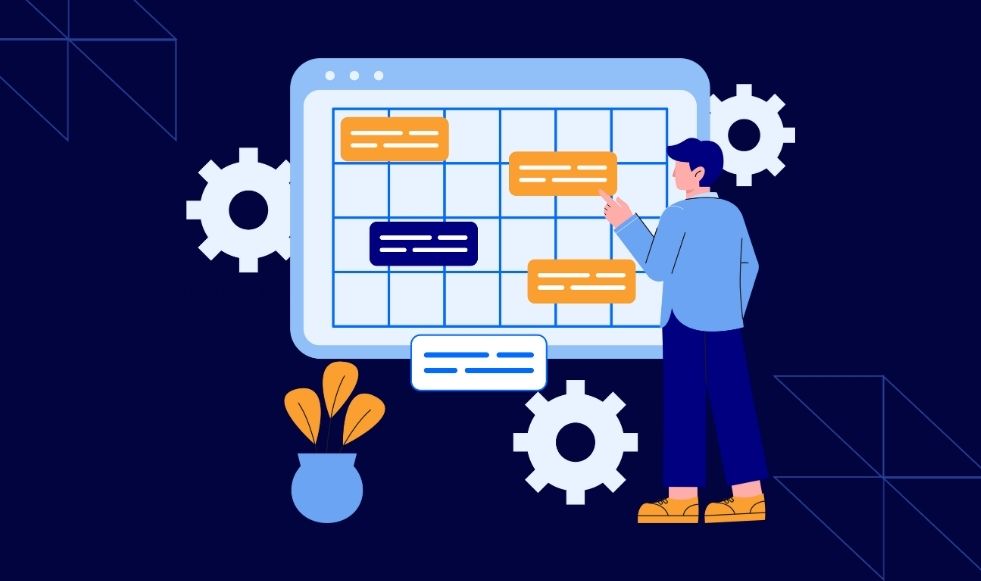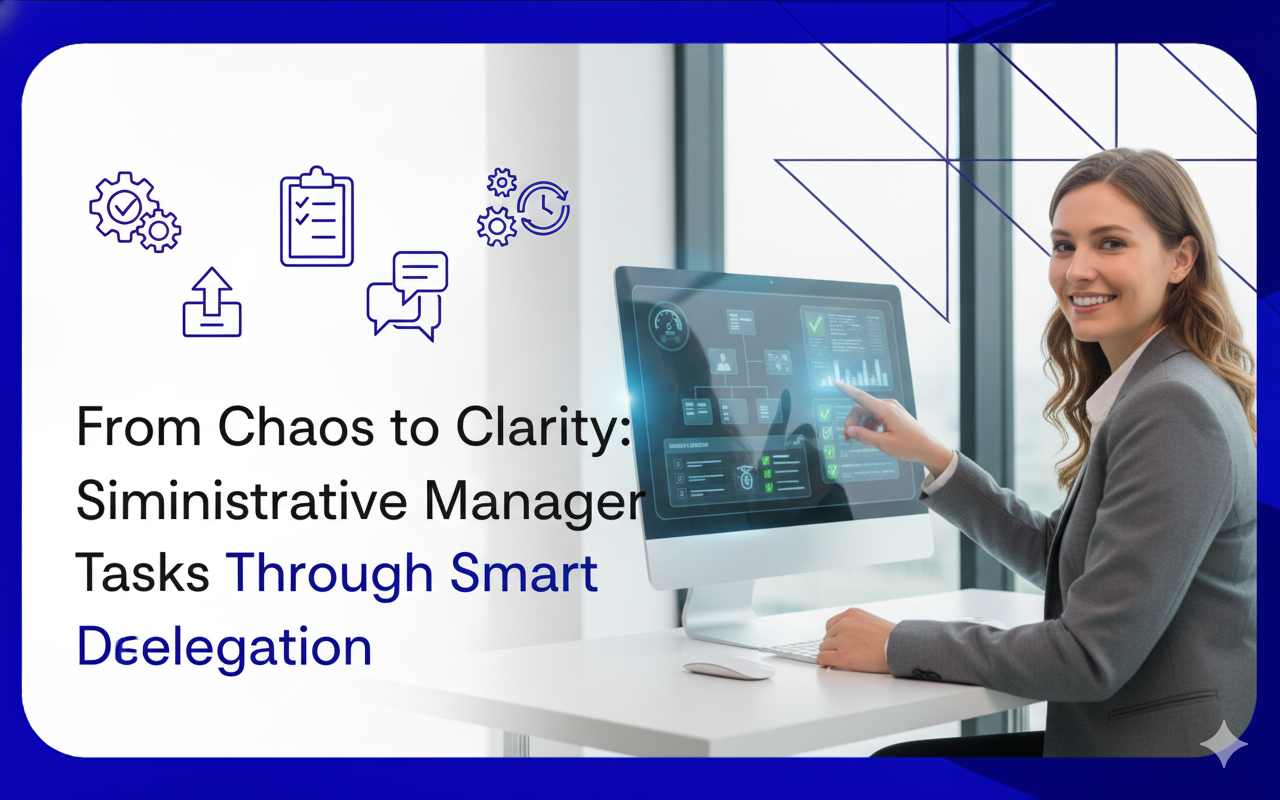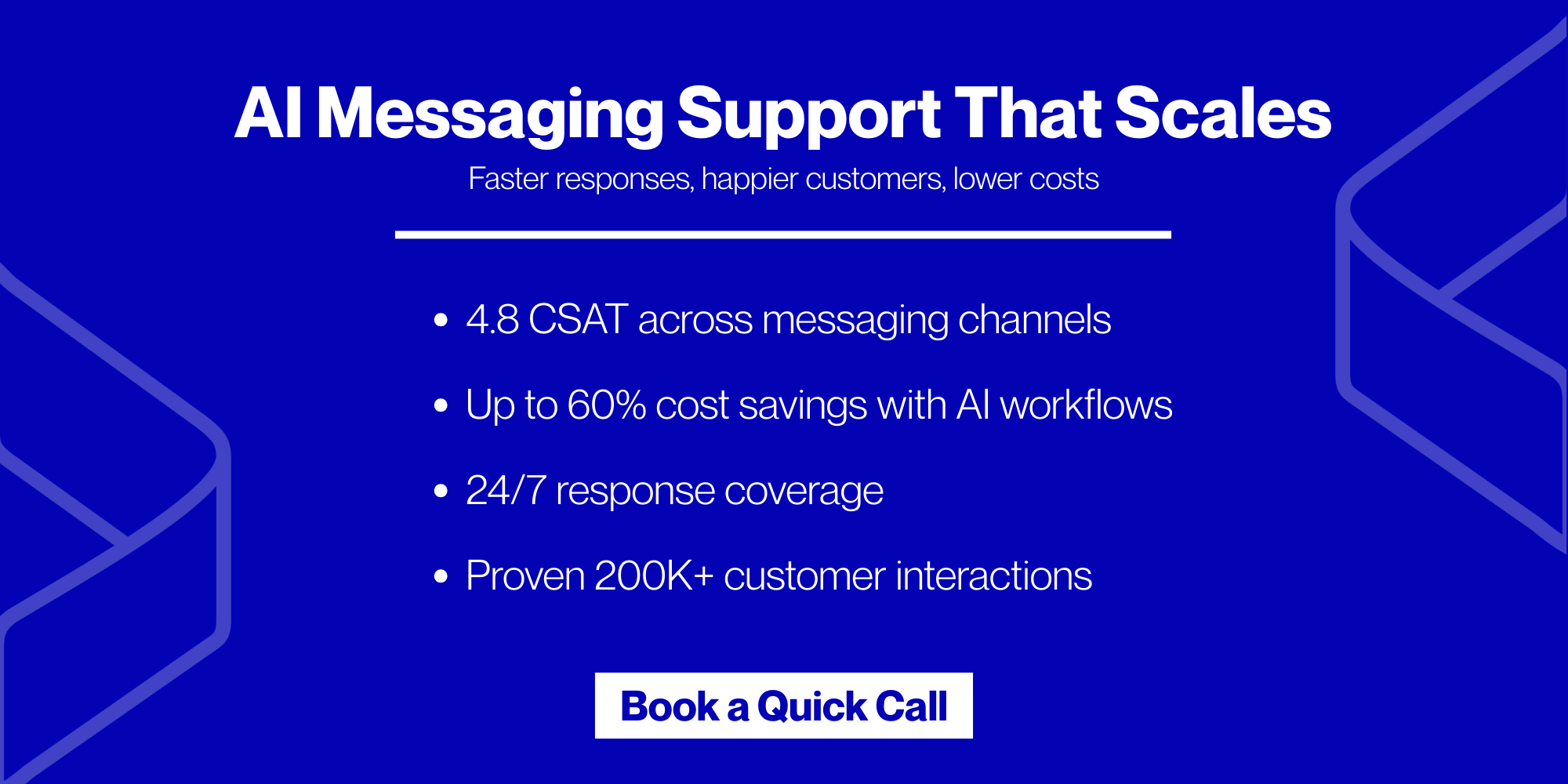Administrative managers tasks require the most attention, yet they must be delegated judiciously to optimize a business’s daily workflow. Businesses are increasingly outsourcing these tasks to outsourcing agencies that not only do the job reliably, but also eke out more value from them. They achieve this by optimally automating the administrative processes so that the repetitive functions can be performed without the clock ticking on the daily prioritized work. Thus, administrative tasks can be completed so that employees have more clarity on their tasks and expectations.
Thinking that the chaos that administrative tasks cause is impossible to take care of by automated, outsourced systems? On the contrary, businesses are using these smart delegation systems to promote coordination between teams and reduce the chaos of work allocation.
- Automation helps attain higher work efficiency for sales teams, freeing up time for 82% personnel that they could use in building stronger client relationships
- 57% businesses plan to automate work methods to bring more efficiency to their CX teams
- 96% mid- and large-sized businesses use learning management systems (LMS) to automate training processes and evaluate performance
Therefore, the trend is skewed towards building a more automated administrative system that eases decision-making processes and manages tasks without putting the workload on employees in 2025.
In this article, let us take a look at what administrative managers are, and what the differences are between delegating tasks and micromanagement. Thereafter, we will seek out the best practices for delegation in management that businesses can build their work culture around.
What is an Administrative Managers?

Administrative managers carry out some of the most vital functions that are indispensable for the management team. Earlier, these tasks were entirely carried out by actual people, but with time, many processes have taken a decisive step towards automation. From budget management to scheduling tasks, they keep everything coordinated and functional. These are the most important responsibilities of administrative managers:
- Supervising teams so that their training and performance can be monitored for progress at all times
- Maintaining information on office resources and available staff so that the workload can be balanced and realistic targets set
- Accruing unstructured data that can then be used to understand work processes better, and hence managed efficiently
- Maintain links between different departments so that all tasks run on time and are kept in line with set business goals
- Planning important events so that they do not clash, and time management is taken care of
In 2025, an administrative managers can efficiently liaise between diverse work disciplines and foresee budget regulations, causing a 66% expediting of budget and forecast reports.
What are the Differences Between Task Managers and Micromanagement Tools?

It is important to understand the delegation vs micromanagement parley so that a rational distinction can be drawn between the two methods. The following table highlights the key differences between the two:
| Task Management | Micromanagement |
| Encourage coordination between colleagues, and encourage accountability and ownership | Depends on constant overseeing, often obsessive overseeing of work processes |
| Focuses on outcomes and progress | Focuses on activities and control |
| Promotes collaboration and accountability | Promotes compliance and fear of mistakes |
| Helps teams prioritize and plan | Tracks minor details unnecessarily |
| Supports a trust-based work culture | Often promotes a toxic culture of mistrust |
| Enables visibility without intrusion | Enables surveillance-like monitoring |
| Boosts motivation by showing progress | Drains motivation by overemphasizing control |
Therefore, the administrative task manager promotes a better methodology suited to building a good work culture and bringing out the best from employees.
What are the Best Practices For Delegating Management Tasks?

The principal function of having administrative manager tasks automated is to recognize potential better and utilize them towards attaining company goals. The best practices that companies should follow while delegating tasks to employees include the following:
Identification and Prioritization of Tasks
The importance of task prioritization becomes more evident when we realize that project managers spend about 15.7 hours a week just prioritizing tasks. Besides taking up a chunk of their workday, these tasks are often not realized scientifically, which could mean that the most efficient employee might not be allocated a task that they could have handled best. Automating the administrative manager takes care of two very important functions:
- Deciding what to delegate: Resource allocation must be carried out to yield maximum efficiency. Hence, if the manager finds out that there is a dearth of expert resources to deal with tasks, they must decide how to proceed with the task. This phase could be a signal that the company needs more resources, or the manager might handle the work personally for the best interests of the company.
- Identifying and Prioritizing: The identifying part becomes redundant for managers because automated systems determine the urgency of tasks based on deadlines. However, it is up to the managers how they judiciously distribute the workload so that the best output can be derived.
Choosing the Right Team
To execute a task with full finesse, managers need to put together the best team for a project. By outsourcing administrative manager tasks, it becomes easier for managers to
- Track the expertise of individual employees and pick the ones who have the right skillset for a job
- According to the technicality of the job, managers could also access structured data that identifies the employees with relevant experience
- Since automated task managers keep tabs on the progress of all tasks, the manager can easily know which team members are free to take up new tasks
Thus, businesses can approach task management more scientifically and make sure that employees are not overworked in 2025.
Clear Communication
Often, miscommunication between managers and team members might cause issues with a project, causing strain in the relationship between the business and the client. The best ways to communicate clearly with everyone involved in a project are
- Clearly define the expectations for the employees, so that they have a complete project outline before them as they begin working on a project
- Automated task managers allow employees to manage time better because they can keep tabs on their own progress on multiple projects
- By virtue of the above points, the team members can themselves prioritize work and synchronize timetables better for smooth coordination between themselves
In 2025, employers do not have to worry about their employees getting listless at work regarding what is expected of them, thanks to outsourced administrative task management.
Providing Required Resources
Data shows that 34% employees benefit from better resource allocation by AI-led task managers. To complete their work in time, team members require active support from other team members and managers so that they can stay on track and not lose focus. Task managers ensure
- The designated team has the necessary resources to carry out the tasks in the way expected of them
- In case the available team members are not well-equipped with the required skills, they are trained effectively within a brief period
- Monitoring of the work processes is carried out at all phases, so that quality assessment can be carried out
Thus, the delegation of tasks must include strategic planning and a roadmap that ensures that the required work is completed in the desired way.
Delegation of Admin Tasks Becoming Too Complex to Ensure Efficacy and Productivity? Choose Atidiv for Smart Delegation!
Delegating administrative managers tasks is a great way to ensure smart coordination between related departments for maximum productivity. However, it is quite difficult to understand what works best for you on the first go. However, with experienced outsourcing agencies like Atidiv, an audit of in-house processes can be carried out to detect snags and design the right task management allocation routine for best efficacy.
Here is a preview of what to expect from Atidiv once you choose to collaborate:
- Advanced data infrastructure that ensures impeccable team building for scalable growth
- Automation of certain processes, embedding an external team with your in-house resources, and custom automation projects
- Time-zone oriented and partial staffing to suit your needs, and ramped-up proceedings when you need to scale
- Automated reporting features on live dashboards, so that you do not have to spend time on performance assessment
- Flexibility with service plans so that you can stay within your budget while getting customized services to suit all your business needs
Atidiv has achieved a 99.5% accuracy in project delivery across disciplines and achieved a 50% cost reduction when compared to in-house expenditures. Contact us today to gain access to exclusive services such as outbound call center services, omnichannel support, live chat outsourcing, and email support, among others.
FAQs on Simplifying Administrative Manager Tasks Through Smart Delegation
1. Why should I choose task delegation instead of micromanagement in 2025?
Micromanagement has become an outdated tool with time, as it has nothing new to offer; rather, it plays a big role in demotivating employees. Smart task delegation is a good alternative because it perfects the work coordination process so that no time is lost in allocation, and clarity is maintained regarding goals and expectations.
2. Can I ensure choosing the right team with smart task delegation?
Yes, absolutely. Smart team delegation involves the consideration of the total workforce and building the right team according to the current workload and related experience. Therefore, businesses count on the task automation manager to pick the best team available from among the employees.
3. Is it possible to wade through the chaos of delegation and find clarity in the designated tasks?
Of course! Manually delegated tasks can introduce errors, and employees typically spend significant time per week trying to figure out what is expected of them. Such wastage of work hours can be promptly avoided with the help of admin task managers. In this changed work ethos, employees can focus on work and be more productive at the workplace, without having to worry about schedules and plans gone wrong.

